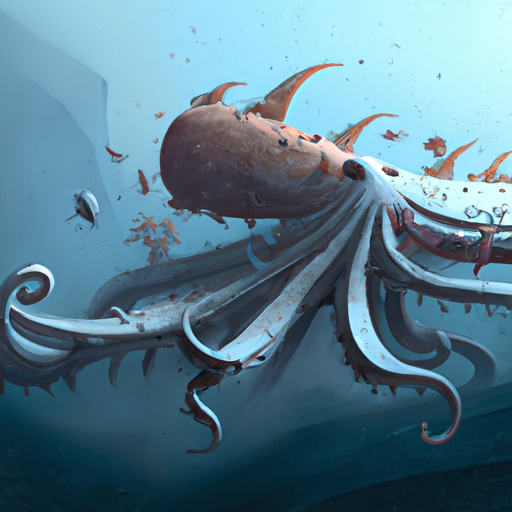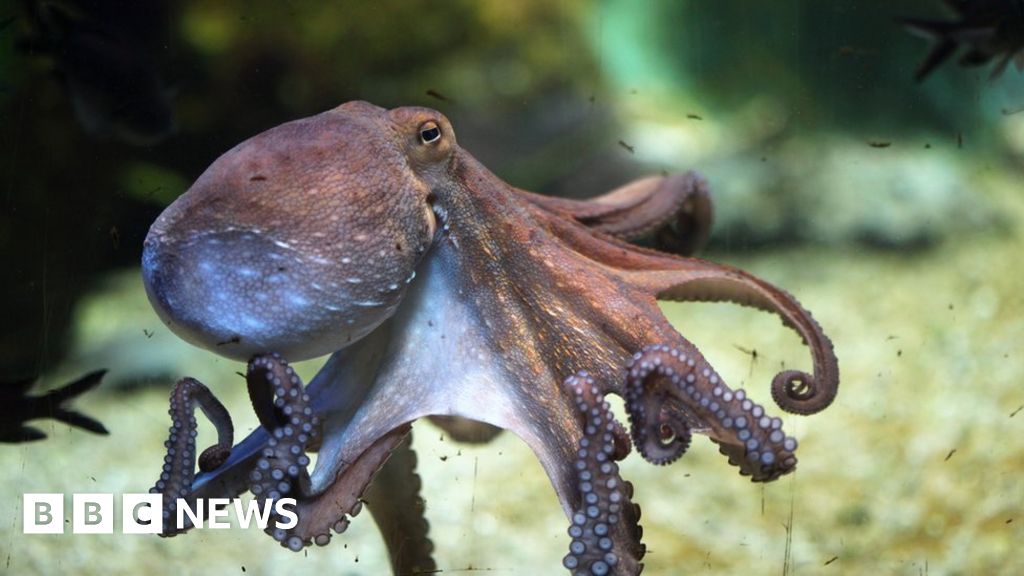

As part of Charity Entrepreneurship's 2023 Top Ideas contest, will we select "Banning octopus (or general cephalopod) farming" as a top Preventive Animal Welfare intervention?
Idea overview
This policy advocacy charity aims to introduce a ban on farming octopuses and/or other cephalopods. Although not targeting the consumption of these creatures, the charity addresses the heightened suffering experienced by farmed octopuses compared to their wild counterparts. By targeting the conditions in which they are kept, and their high consumption of other animals as feed, the charity would seek to mitigate the overall suffering caused by the system of farming these complex creatures.
Preventive animal welfare
This year our focus is on interventions and policies that prevent future harms done to animals, as opposed to solving current problems. We will be looking for interventions that, as well as having some short run evidence of impact, will prevent future problems, i.e., have the biggest impact on farmed animals in the future, say 35 years from now.
We intend to select 2-4 ideas out of the 10 presented to recommend to entrepreneurs who enter our incubation program. This market resolves YES if this idea is chosen; NO otherwise.
About the contest
In partnership with Charity Entrepreneurship, Manifold is sponsoring a $2000 forecasting tournament to inform which ideas end up selected
You can win part of a $1000 prize pool as a forecaster, for best predicting which interventions we choose.
You can win one of ten $100 prizes for posting an informative comment on Manifold that most influences our decision.
For contest details and all markets, see the group CE 2023 Top Ideas.
🏅 Top traders
| # | Trader | Total profit |
|---|---|---|
| 1 | Ṁ1,848 | |
| 2 | Ṁ1,264 | |
| 3 | Ṁ171 | |
| 4 | Ṁ118 | |
| 5 | Ṁ98 |
People are also trading
@MarcusAbramovitch It says it's not targetting the consumption but of the conditions of that they are kept in. I'm not exactly sure how these markets work, or where to read more info on it, if there is, but im just going off of the description above.
@higherLEVELING "This policy advocacy charity aims to introduce a ban on farming octopuses and/or other cephalopods."
@MarcusAbramovitch lol true. it does say that. but then it also says that they are targetting the conditions of farming and the suffering, I probably misubnderstood and just skipped the first part.
@MarcusAbramovitch If it’s small it’s addressable with the meager funding these projects are seeded ($200kish). So it makes even more sense to me now.
@MarcusAbramovitch Things like this are best made faux pas before they get too industrialized.
@MarcusAbramovitch when I worked in DC one of the most aggressive lobbies was the anti-horse meat organization and they wiped it out basically but still didn’t diminish the influence of their lobby. Octopus could be the horse of the sea, you know?
I really don't know why this is so low. People don't like the sound of bans, but it's not hard to ban octopus farms because they're not really a thing yet. However, some people are trying to create them, so now is an excellent time to establish a ban. This is from just 2 months ago:
I think this charity idea is a great one, and we should get started asap!
Many of the other preventive animal welfare ideas are also good, but I think it's more important to fund this one this year because it is simply much more pressing.
CE is also well-placed to do a good job with this kind of legal intervention (as proven by the multiple legal successes of the Lead Exposure Elimination Project). Plus, there's the possibility of fast feedback loops here, which could help CE gain even more competencies and allies in within the animal-welfare-facing side of the legal sector. That kind of thing could be helpful for informing the strategy for the Fish Welfare Initiative, the Shrimp Welfare Project, and any future 'fish welfare policy advocacy' charities.
or general
I'd lean more general and present comprehensive research rather than presenting narrower patchworks of policy. I'd also explore supply elasticity from Pigovian taxes and other incentives before being deadset on bans:
https://wikipedia.org/wiki/Pigouvian_tax#Alternatives
since there don't seem to be many farming ban precedents
~2 minutes of thinking: I think 'if this is selected' depends a lot on particular way the selectors' explicitly think about the how animals are morally valued. I don't personally think it makse sense to care about octopus farming given its current/potential future scale - either you value humans much more than all animals and care less about animal welfare generally, or you care a lot more about, say, pigs or wild animals than farmed octopi, but I don't expect anyone else to share that opinion so easily
